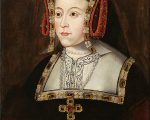
In today’s “on this day in Tudor history” video, I read an excerpt from my book about a sad event affecting King Henry VIII and Queen Catherine of Aragon on this day in 1510.
[Read More...]
In today’s “on this day in Tudor history” video, I read an excerpt from my book about a sad event affecting King Henry VIII and Queen Catherine of Aragon on this day in 1510.
[Read More...]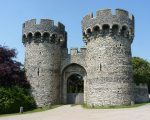
In today’s “on this day in Tudor history” video, we go back to 1554 and to Wyatt’s Rebellion.
[Read More...]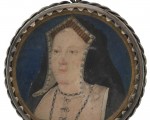
On this day in Tudor history, Henry VIII’s first wife, Catherine of Aragon, was buried at Peterborough Abbey.
[Read More...]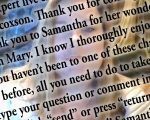
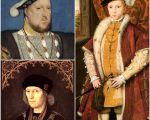
In today’s “on this day in Tudor history” video, I read an extract from my book about the birth of King Henry VII on this day in 1457 and the death of his son, King Henry VIII, on this day in 1547.
[Read More...]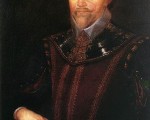
Sir Francis Drake died on this day in Tudor history in 1596, but who was he? I share some Francis Drake facts and two legends that surround this colourful man.
[Read More...]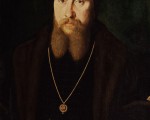
Today’s Sunday quiz is on William Paget, 1st Baron Paget, a man who served Henry VIII, Edward VI and Mary I. How much do you know about this Tudor man? Find out! Good luck!
[Read More...]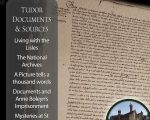
This month’s Tudor Life Magazine focuses on Tudor documents and sources. Our regular writers and guests have come up with another wonderful Tudor-packed magazine. And who knows, in 500 years time, Tudor Life magazine will also be a great historical document!
[Read More...]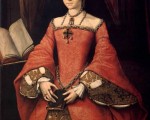
In today’s “on this day in Tudor history”, we go back to 1554, where trouble was brewing for both Mary I and her half-sister, Elizabeth.
[Read More...]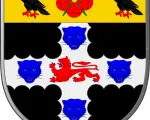
Thank you to John Tepper Marlin, MA (Oxon.), author of Oxford College Arms for writing this guest post for us.
Six Oxford colleges were founded under the Tudors. Three under Henry VIII, two under Mary I, and one during the reign of Elizabeth I.
As members of the Tudor Society will know, the Tudor dynasty started with Henry VII, son of Lancastrian Edmund Tudor and Margaret Beaufort, a descendant of Edward III. Henry VII was brought up in Wales but had exiled himself to France while the Yorkists were in power. After the disappearance of Edward V in 1483, his uncle Yorkist Richard III was crowned and soon made himself unpopular. Henry VII returned to Wales, assembled an army that defeated and killed Richard III at Bosworth Field in 1485, and was crowned king in London. By marrying Elizabeth of York the following year, Henry VII united the Houses of Lancaster and York and created as his badge the “Tudor Rose” – red outside, white inside–that ever since has been used by every British monarch as a symbol of England.
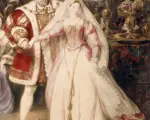
On this day in Tudor history, 25th January 1533, King Henry VIII married his second wife, Anne Boleyn, at Whitehall Palace. In this video, I share an excerpt from my book, On This day in History, to tell you more about this event.
[Read More...]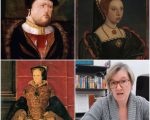
Thank you so much to Tudor Society member Michelle for inspiring today’s Claire Chats video talk on Acts of Attainder, what they were, how they were used and why Mary I reversed some.
[Read More...]
Just a reminder that our January expert live chat is taking place in the Tudor Society chatroom tomorrow, Friday 25th January.
Our expert speaker for this month is Samantha Wilcoxson, author of The Plantagenet Embers series of historical novels. Her talk is on Mary I, the subject of her novel Queen of Martyrs: The Story of Mary I and you can catch it at https://www.tudorsociety.com/expert-talk-mary-i-samantha-wilcoxson/ if you haven’t had chance to view it yet.
[Read More...]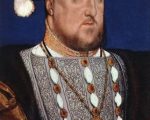
On this day in Tudor history, 24th January 1536, King Henry suffered an accident while jousting at Greenwich. What happened and just how serious was it? Claire looks at the contemporary sources.
[Read More...]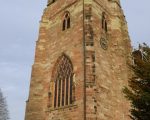
William Brereton (or Bryerton) was the sixth son of a leading, landowning Cheshire family. He was born between 1487 and 1490; his father was Sir Randolph Brereton of Malpas, chamberlain of the county palatine of Cheshire. Randolph became a knight of the body in 1513. William’s mother was Eleanor Dutton, daughter of Piers Dutton of Halton. Brereton, like three of his brothers, entered royal service and by 1524 (perhaps even 1521) he had become a groom of the privy chamber.
[Read More...]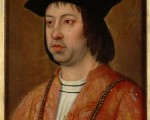
In today’s “on this day in Tudor history” video, I take you to Spain and back to 1516. I hope you enjoy the video and the photos of the Capilla Real.
[Read More...]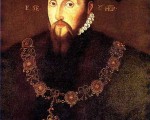
In today’s “on this day in Tudor history” video, I take you back to 1552 and the execution of Edward Seymour, Lord Protector.
[Read More...]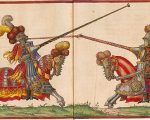
We’re just coming to the end of a 3-day fiesta here in our village to celebrate our village’s saints’days and I just had to share this video with you for a bit of fun as it made me think of Henry VIII and his fellow knights.
[Read More...]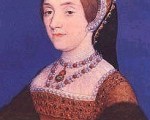
In today’s “on this day in Tudor history” video, I talk about the Act of Attainder which was used against Catherine and her lady, Jane Boleyn, Lady Rochford, in 1542.
[Read More...]
On this day in Tudor history, 20th January 1557, Queen Mary I’s pensioners “did muster in bright harness” before her at Greenwich Park, but who were they and what happened? Let me explain…
[Read More...]
I thought it would be fun to test your knowledge of the events and people I’ve talked about so far in my “on this day in Tudor history” videos, so here goes. Good luck!
[Read More...]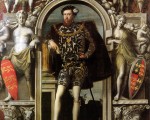
In today’s “on this day in Tudor history” video, we go back in time to 19th January 1547 and Henry Howard’s end on the scaffold.
[Read More...]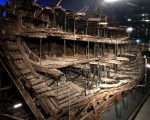
In this week’s Friday video, our roving reporter, Philippa Lacey Brewell, visits Southsea and the Mary Rose Museum, allowing you to enjoy these places from the comfort of your favourite armchair.
[Read More...]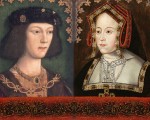
Today’s “on this day in Tudor history” is a happy episode from early in Henry VIII’s reign, when he was happy in his marriage to Catherine of Aragon.
[Read More...]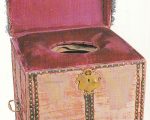
Sir Henry Norris was born sometime in the late 1490s and was the son of Richard Norris and grandson of Sir William Norris of Yattendon and his wife, Jane de Vere, daughter of John de Vere, 12th Earl of Oxford. Norris’s family had a long history of serving the monarch – his great-grandfather, Sir John Norris, had been Keeper of the Great Wardrobe to Henry VI and his grandfather, Sir William Norris, had been Knight of the Body to Edward IV. Sir William Norris had been attainted after being involved in the Duke of Buckingham’s rebellion against Richard III and had been forced to flee to Brittany, where he joined the forces of Henry Tudor and may even have fought at the Battle of Bosworth. Sir William had a command in June 1487 at Stoke and went on to become the Lieutenant of Windsor Castle.
[Read More...]
A rather tall tale from Elizabethan England today!
“Extra! Extra! Read all about it! Leicestershire woman gives birth to cat!!
[Read More...]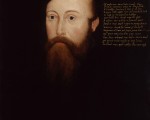
Thomas Seymour was accused of attempting to kidnap his nephew, King Edward VI, on this day in 1549, but what exactly happened? In this video, I recount the story, as told by two contemporary sources.
[Read More...]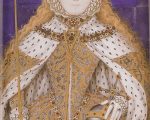
On this day in Tudor history, 15th January 1559, Queen Elizabeth I was crowned queen by Owen Oglethorpe, Bishop of Carlisle, at Westminster Abbey. Let me tell you all about it in today’s video.
[Read More...]
The Mary Rose Museum has just let me know about the half-term activities its running at its museum in Portsmouth from 16-24 February 2019.
Here are the details:
Location: The Mary Rose Museum, Portsmouth, UK
Dates: 16th – 24th February 2019
Time: 11:30-15:30
£2 to take part in Tudors in Love
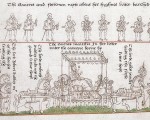
In today’s “on this day in Tudor history video”, I talk about Queen Elizabeth I’s coronation procession from the Tower of London to Westminster, an event that took place on this day in 1559.
[Read More...]